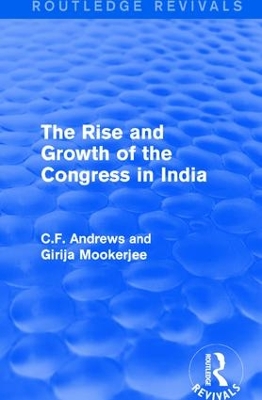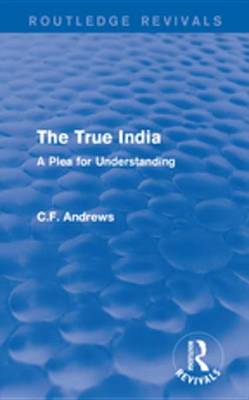Routledge Revivals
8 total works
First published in 1937, this book examines the changes in working conditions and vast improvements on sugar plantations in 20th century Fiji. By the 1930s, the sugar industry had become economically stronger through the substitution of the small tenant farm for the large plantation. Andrews examines how this led to a moral and social transformation in Fijian society. He also highlights many unsolved problems, and is aware that dependence on a single crop supported by imperial preference is too narrow a basis for progress in Fijian society. In the latter chapters Andrews reviews the position of Indian dispersion in the pacific, and reviews the relation of India itself to the pacific countries and Europe at a time when the British Empire was experiencing a great fall in prestige. There are also chapters that contain matters of specific interest to Australia, New Zealand, and Canada.
Routledge Revivals: The Challenge of the North-West Frontier (1937)
by C. F. Andrews
First published in 1937, this book grew out of the author’s belief that there needed to be a ‘drastic revision’ of British policy on the North-West Frontier of India (now Khyber Pakhtunkhwa in Pakistan) in order to achieve a lasting peace. The author examined the causes of continued hostility and non-military methods that might prevent further outbreaks of war — reducing or removing British troops and leaving the settlement of disputes to Indians. He traces the changing attitudes of Indians towards British rule and the increasing popularity of calls for independence while also detailing the wider Indian context. This book will be of interest to students of Indian and colonial history.
This book discusses the effects of the indenture system on Indians across the colonies, but more specifically Fiji. It will also discuss the close relationship between the Indian settlers and the original population in each colony, as well as the position of Indians born in the colonies.
Routledge Revivals: The Rise and Growth of the Congress in India (1938)
by C. F. Andrews and Girija Kanta Mookerjee
First published in 1938, this book aims to provide a history of the rise and growth of the Indian National Congress for the general reader, covering the period from its foundation in 1885 until the beginning of the non-co-operation movement in 1920. It was intended to extend the official history of the Congress by Pattabhi Sitarammayya by making it more accessible to western readers while also giving more space to the religious and social forces in Indian history during the nineteenth century which led to the birth of the congress. It also looks at forerunner organisations like The British Indian Association before examining the history and evolution of the congress in several phases.
First published in 1939, this book sets out to refute some of the 'unjust charges laid at India's door' and correct the 'false impressions' that prevailed at the time. The author argues that the distorted view of the social conditions in India in the contemporary press and literature were detrimental to the relationships between East and West. Attempting to give a picture of the true state of affairs, they show that Hinduism was reforming from within and that it was unjust to still equate it with earlier periods. The Depressed classes, women's rights, child marriage, Caste and Kalighat are all examined in detail. The book will be interest to students of colonial India and social history.
First published in 1930, this book sought to explain to western readers the vital necessity of approaching the 'Indian problem' from the emerging national standpoint in India, and of appreciating its ideals. The author relates this necessity directly to the task undertaken by the Simon Commission in 1928 to make a survey of India and the resultant suggestions for constitutional changes in their report in early 1930. This work represents an attempt to bridge the gulf between India and Britain, one which appeared to be widening at the time of the report. This book will be of interest to students of colonialism and colonial India, especially as a prelude to its independence in 1947.
The author examined the causes of continued hostility and non-military methods that might prevent further outbreaks of war - reducing or removing British troops and leaving the settlement of disputes to Indians. He traces the changing attitudes of Indians towards British rule and the increasing popularity of calls for independence while also detailing the wider Indian context. This book will be of interest to students of Indian and colonial history.
First published in 1929, this book was intended to explain, "with documentary evidence", the main principles and ideas for which Gandhi had stood over the course of his career up until that point. The author draws upon his long and intimate personal relationship with Gandhi to give an authoritative and individual account of a man whose politics and philosophy has invited continuing analysis - extended with illustrative selections from his speeches and writings. The context in which Gandhi's ideas were formed and developed provides the focus for this book with the first part examining the religious environment and the second the historical setting.






